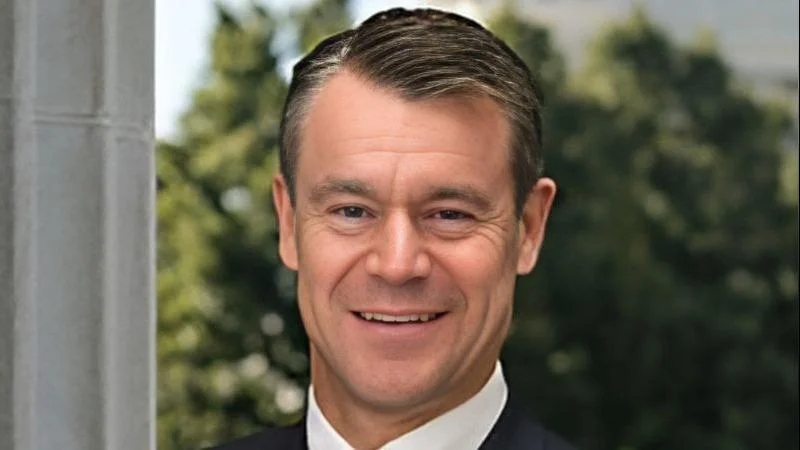Senator Todd Young, US Senator for Indiana | Official U.S. Senate headshot
Senator Todd Young, US Senator for Indiana | Official U.S. Senate headshot
On May 23, 2024, U.S. Senators Todd Young (R-Ind.) and Alex Padilla (D-Calif.), both commissioners on the National Security Commission on Emerging Biotechnology (NSCEB), introduced a bipartisan package of bills aimed at safeguarding America’s food security and agricultural supply chains, which are deemed critical to national security.
Senator Young introduced the Synthetic Biology Advancement Act, designed to foster innovation in food and agriculture by establishing a National Synthetic Biology Center. Additionally, he proposed the Biotechnology Oversight Coordination Act to streamline federal biotechnology efforts and enhance regulatory efficiency.
Senator Padilla put forward the Agriculture and National Security Act, which aims to identify and mitigate threats to food and agriculture by focusing on emerging technologies. This act would also establish a Senior Advisor for National Security within the U.S. Department of Agriculture (USDA). Furthermore, Padilla introduced the Agricultural Biotechnology Coordination Act to create the USDA Office of Biotechnology Policy, tasked with developing and coordinating department policies on biotechnology and biomanufacturing while preventing redundant federal efforts.
Both senators intend to incorporate these bills into the upcoming Farm Bill. The NSCEB has endorsed all four legislative proposals.
“Biotechnology offers tremendous opportunities to strengthen America’s food security and agriculture innovation, both of which are critical to our national security,” stated Senator Young. “These bipartisan bills will help ensure the United States maintains its global leadership in emerging biotechnologies and that the benefits reach more Americans.”
Senator Padilla emphasized the importance of integrating agricultural innovation with national security: “Food security is national security. We must prioritize American agricultural and biotech innovation to strengthen our food supply chain as a critical infrastructure sector while protecting our national security interests against rising global competition.”
The NSCEB was established under Sec. 1091 of the National Defense Authorization Act for Fiscal Year 2022. The Commission began its work in 2023 with a mandate to review advances in emerging biotechnology comprehensively. It is required to provide an interim report within one year and a final unclassified report within two years, including recommendations for Congressional action.
NSCEB Chair Jason Kelly highlighted the broader implications of biotechnology: “We are especially excited about these bills because they emphasize that biotechnology’s promise extends far beyond pharmaceuticals and therapeutics. These policy recommendations will catalyze continued American agriculture innovation and food security, both essential components of national security.”
NSCEB Vice Chair Michelle Rozo added: “All of the Commission’s work to date has been grounded in ongoing dialogue with stakeholders across the U.S. and abroad. These legislative recommendations, championed by our Congressional Commissioners, are public proof that we are not just listening but acting to ensure a strong biotechnology ecosystem.”
In addition to Senators Young and Padilla, Representatives Stephanie Bice (R-OK-5) and Ro Khanna (D-CA-17), along with other experts outside Congress, serve on this bipartisan commission. Companion legislation for three of these acts is expected to be introduced this week in the House of Representatives.






 Alerts Sign-up
Alerts Sign-up